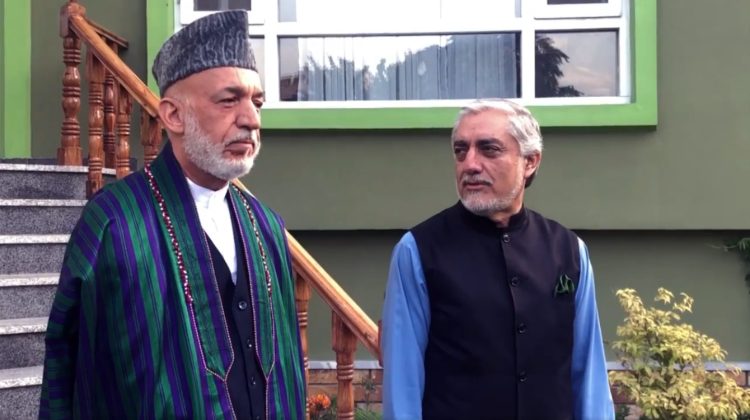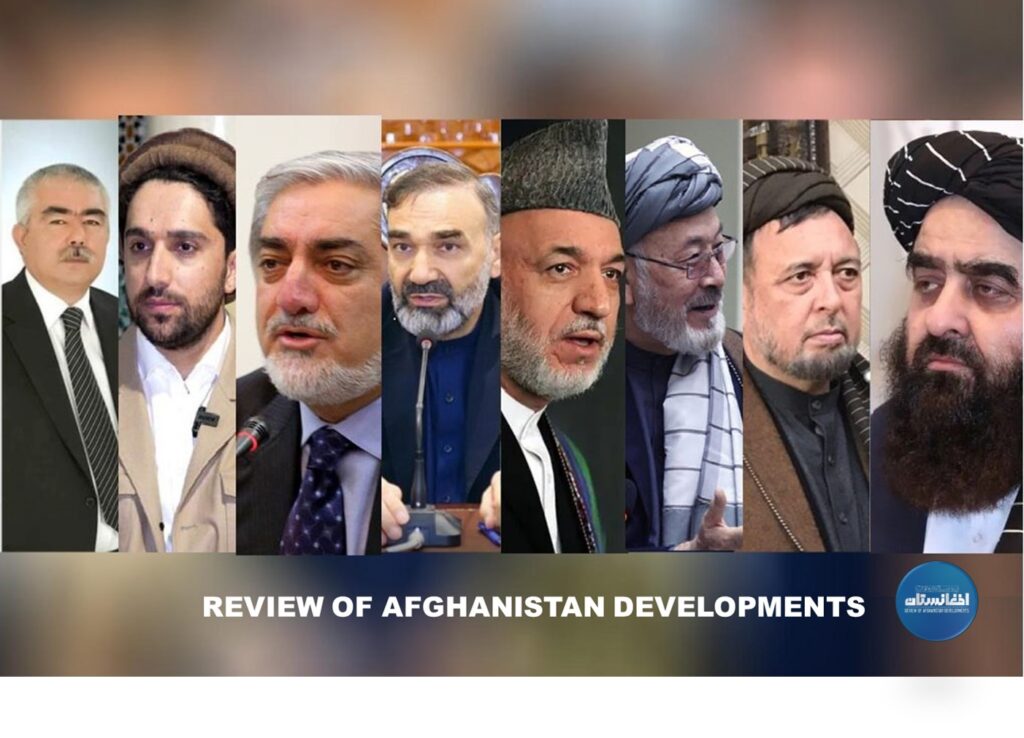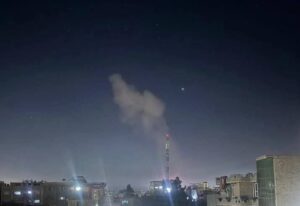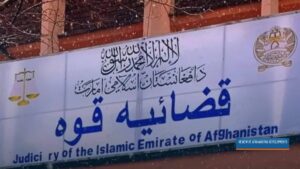Review of Afghanistan developments
Following Israel’s strike against Iran and the Islamic Republic’s subsequent response to this aggression, the Taliban government, prominent figures, and political movements issued reactions through announcements, statements, and messages. Alongside these institutional responses, the Afghan populace, both domestically and abroad, weighed in on the Iran-Israel hostilities. An analysis of these reactions reveals significant insights, which this note addresses.
The position of the Taliban government of Afghanistan
Taliban government strongly condemned Israel’s attacks on Iranian soil hours after the violation occurred. The use of the phrase ‘assassination of nuclear commanders and scientists’ in the statement indicates that Taliban government views this act not merely as a military operation, but as a targeted effort against Iran’s military structure. Furthermore, the statement characterized the assault on Iran as a ‘continuation of the pattern witnessed in Gaza,’ adding that ‘the occupying regime persists in this course with blatant disregard for humanitarian and international rules.
In this statement, expressions of solidarity with the people of Palestine and references to Israel’s sustained catastrophic attacks in Gaza signal the Taliban government’s alignment with anti-Zionist Islamic factions. Nevertheless, the message adopts a diplomatic tone, urging ‘all relevant parties’ to act responsibly to prevent the escalation of instability.
- Various officials of the Taliban government have also, in recent days, informally expressed support for the Islamic Republic of Iran through messages on social media, condemning the Zionist regime’s aggression against Iran. Mohammad Jalal, a senior member of the Taliban government’s Cultural Commission, wrote on his X (Twitter) account while posting pictures of Iran’s missile attack on the occupied territories: “Scenes from the occupied Tel Aviv after the Islamic Republic of Iran exercised its right to legitimate defense.” Ahmad Khan Daee, the editor-in-chief of the state-run Anis newspaper, wrote on his Telegram channel: “Today, Iran is the bulwark of resistance that has prevented Isreal from advancing and has stopped it. The future of the Two Holy Sanctuaries (Al-Haramain), the liberation of Jerusalem (Quds), and the dignity of the Islamic Ummah are tied to the survival of today’s strongholds like Hamas, Iran, and other fortresses.”
Stances of Political Figures and Factions
National Council for the Salvation of Afghanistan
A significant portion of Afghanistan’s political figures and factions have also reacted to this development. The National Council for the Salvation of Afghanistan—the largest opposition coalition to the Taliban government, comprising several smaller parties and movements and based in Turkey—stated in a released declaration: “We are following with deep concern the escalation of military tensions in the Middle East, particularly the recent attacks against the territory of the Islamic Republic of Iran. We condemn any military action resulting in civilian casualties, disruption of regional peace, or violation of state sovereignty.” Notably, the Council’s statement makes no explicit mention of Israel. Its ambiguous phrasing could even be interpreted as implicitly condemning Iran’s retaliatory strikes against the Zionist regime, despite Tehran framing them as “legitimate self-defense.”
Supreme Council of Resistance for Afghanistan’s Salvation
In contrast to the National Council for Afghanistan’s Salvation’s cautious statement, the Supreme Council of Resistance for Afghanistan’s Salvation—a member organization of the National Council led by figures such as Abdul Rashid Dostum, Mohammad Mohaqiq, Atta Mohammad Noor, and Abdul Rab Rasul Sayyaf—issued a separate declaration. This statement explicitly condemned Israel’s attack on the Islamic Republic’s soil and expressed revulsion toward it. The text employed pointed terminology including:
“Israel’s aggressive action against the Islamic Republic of Iran”
“The martyrdom of several citizens”
“Expressing condolences to the people and government of our friendly and brotherly nation, the Islamic Republic of Iran”
The Supreme Council’s decision to issue an independent declaration appears directly linked to the National Council’s overly guarded statement, which notably refrained from explicitly condemning Israel’s assault on Iran.
National Resistance Front of Afghanistan (NRF)
The front, under the leadership of Ahmad Masoud, has clearly denounced the Israeli assault on Iran, labeling it as an “aggression” that resulted in the martyrdom of several high-ranking officials of the Islamic Republic and the “great people of Iran.” The front has conveyed its “deep sympathy with the nation and government of the Islamic Republic of Iran” and has wished for “heaven ” for “the martyrs of this blatant aggression.”
Famous people
Prominent individuals, including former President Hamid Karzai and Dr. Abdullah Abdullah, the former Chairman of the High Reconciliation Council, responded by releasing statements in the early hours following Israel’s aggression against Iran. Karzai “strongly condemned and denounced” the Israeli assault on Iran, while Abdullah Abdullah criticized “the Zionist regime’s blatant and illegitimate aggression on the territory of the Islamic Republic of Iran in the strongest terms,” viewing this act as a representation of Israel’s “terrorist and expansionist” policies. In a separate statement, Abdul Rashid Dostum denounced the Israeli aggression, asserting that “Iran will not remain silent in the face of this aggression and will prevail.” Karim Khalili, the leader of the Unity Party, “condemned the Israeli military attack” on Iran, highlighting Iran’s role in accommodating millions of Afghan refugees, and stressed that any conflict in this nation would result in significant humanitarian and security repercussions for the region. Atta Mohammad Noor also vehemently condemned the assault, employing phrases such as “the brutal and aggressive Zionist regime” and “blatant aggression and clear violation of Iran’s national sovereignty.”
Related Articles:
The Nature of Iran’s Confrontation with Israel
Zionist regime’s Aggression against Iran: Behaviors and Needs


















